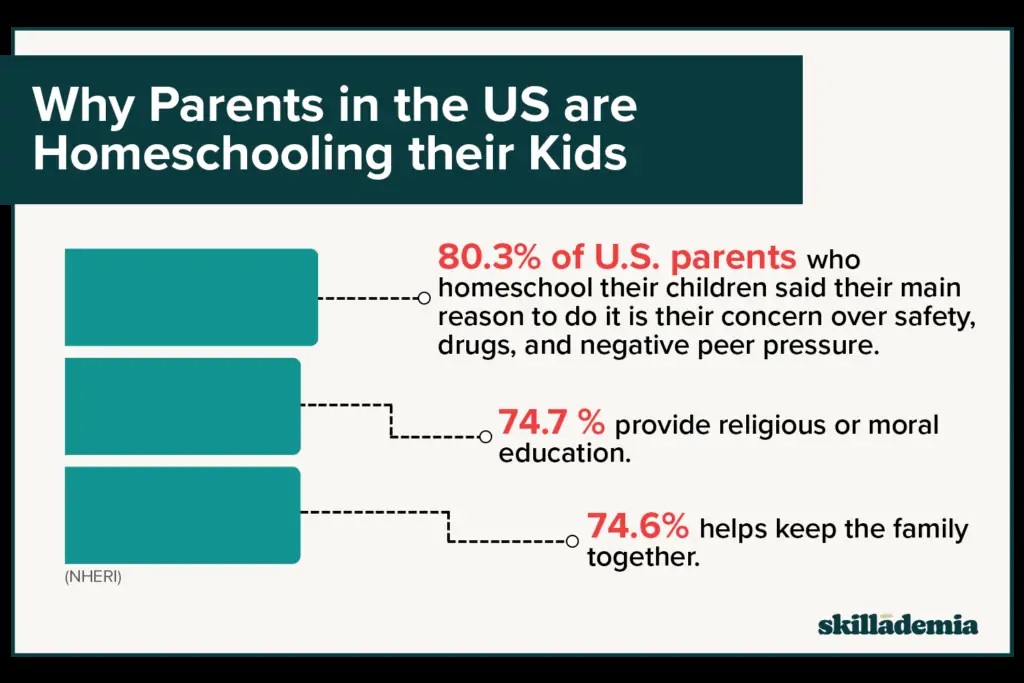In recent years, homeschooling has emerged as a compelling option for families worldwide, capturing the interest of parents seeking alternatives to traditional education. As conventional schooling systems face a myriad of challenges—from overcrowded classrooms to one-size-fits-all curricula—more and more families are considering homeschooling as a way to offer their children a learning experience tailored to their unique needs and interests.
This blog delves deeper into the reasons behind this growing trend and invites you to explore the significant benefits that homeschooling offers, along with insights from leading education events in Vegas, such as the Education 2.0 Conference. Join us as we discuss how personalized education can shape a child’s future and why so many parents are making the switch.
Historical Context Of Homeschooling
Homeschooling isn't a new phenomenon. Historically, it was the primary mode of education before the establishment of formal schools. Over time, as public education systems developed, homeschooling became less common. However, the modern homeschooling movement began gaining momentum in the 1970s and 1980s, fueled by a desire for more personalized and flexible education options. This resurgence can be attributed to educational reform movements and an increased awareness of individualized learning needs.
Current Statistics And Trends
Homeschooling has seen a significant rise in recent years. According to the National Center for Education Statistics, the number of homeschooled students in the U.S. increased from 850,000 in 1999 to over 2.5 million in 2020. This trend continues to grow, with more families opting out of traditional schooling. The COVID-19 pandemic further accelerated this shift, as many parents sought safer and more controllable educational environments for their children.

Source: skillademia
Reasons For The Shift To Homeschooling
1. Personalized Learning
One key reason families opt for homeschooling is the flexibility to customize education based on their child’s specific needs. Unlike traditional schools, which follow a standardized curriculum, homeschooling allows for a customized learning plan. Parents can tailor education to highlight their child's strengths and interests, creating a more captivating and productive learning environment. Moreover, attending education events such as the Education 2.0 Conference in Vegas can further enhance this customized learning experience, offering parents and students alike the opportunity to explore innovative educational methods and connect with like-minded individuals in the homeschooling community.
2. Flexible Scheduling
Homeschooling provides unmatched scheduling adaptability. Families can tailor a schedule to fit their lifestyle, affording more time for family and extracurricular pursuits. This adaptability is particularly advantageous for families that often travel or whose children participate in demanding extracurriculars. This adaptability is particularly advantageous for families who often travel or have children engaged in demanding extracurricular activities.
3. Concerns About Traditional Schooling
Safety concerns in public schools, such as bullying and school violence, are significant factors driving families toward homeschooling. Additionally, some parents are dissatisfied with the quality of education and the one-size-fits-all approach of traditional schools. Homeschooling allows parents to provide a safer and more nurturing learning environment. The ability to control the learning environment ensures that children are free from distractions and negative influences.
4. Academic Benefits
Homeschooled students frequently surpass their peers from traditional schools in academic performance. Research indicates that these students often achieve higher scores on standardized tests and are more inclined to pursue higher education. The personalized attention and tailored curriculum of homeschooling contribute significantly to these superior academic outcomes. Moreover, homeschooling facilitates accelerated learning in areas where children excel, thereby boosting their academic achievements. As we look ahead to the 2025 education conferences, these insights into the benefits of homeschooling will likely be an integral point of discussion, offering valuable perspectives on enhancing educational strategies.
5. Moral And Religious Reasons
Many families choose homeschooling to align their child's education with their moral and religious values. Homeschooling allows parents to incorporate their beliefs into the curriculum, providing a holistic education that includes spiritual and moral development. This integration helps children develop a strong ethical foundation and a clear sense of identity.
6. Special Needs And Learning Disabilities
Homeschooling can be particularly beneficial for children with special needs or learning disabilities. It offers a supportive and adaptable learning environment that caters to their unique requirements. Parents can use specialized teaching methods and resources to help their children thrive academically and personally. The one-on-one attention ensures that these children receive the support they need to succeed.
Socialization In Homeschooling
Homeschooling offers unique advantages for children with special needs or learning difficulties. However, homeschooled children often have ample opportunities to interact with peers through co-ops, sports teams, community activities, and various extracurricular events. Research indicates that homeschooled children develop strong social skills and are often more adaptable in diverse social settings. Participation in community service projects and other group activities further enhances their social development.
Technological Advancements Supporting Homeschooling
Technology has revolutionized homeschooling, making it more accessible and efficient. Online tools, digital classrooms, and educational applications offer a plethora of data and interactive educational experiences. Parents can leverage technology to enhance their child's education and keep them engaged with diverse learning materials. Platforms like Khan Academy, Coursera, and various educational software have made quality education more accessible than ever.

Legal And Logistical Considerations
Homeschooling laws and requirements vary by region, so it's essential for parents to familiarize themselves with local regulations. In numerous states, parents are required to file an intent to homeschool, keep records, and undergo yearly evaluations. There are ample resources available to assist families with these obligations, such as curriculum guides and online support groups.
Creating a structured homeschooling environment is crucial for success. Parents should designate a specific area for learning, establish a routine, and set clear educational goals. Joining homeschooling groups and attending education events, such as the Education 2.0 Conference in Vegas, can provide additional support and networking opportunities. These conferences offer valuable insights and resources to enhance the homeschooling experience.
Conclusion
Homeschooling offers a viable and increasingly popular alternative to traditional schooling. With benefits such as personalized learning, flexible scheduling, and a safer environment, it's no wonder more families are making this choice. As technology advances and additional resources become accessible, homeschooling is expected to grow more appealing and available to families globally. For those considering homeschooling, attending education conferences such as the 2025 Education 2.0 Conference can provide valuable insights and resources to get started.
Homeschooling is not just a trend but a growing movement that empowers parents to take control of their children's education, ensuring a tailored, high-quality learning experience. As more families recognize the benefits, the homeschooling community will continue to expand, offering diverse and enriching educational opportunities for children everywhere.
FAQs
Q1. What is the Education 2.0 Conference, and how can it benefit homeschooling families?
Ans. The Education 2.0 Conference is a leading event that brings together educators, innovators, and families to discuss the future of education. For homeschooling families, this conference provides a unique opportunity to explore new educational technologies and teaching strategies and network with other homeschoolers and professionals. It offers sessions and workshops that can help parents enhance their homeschooling practices and better tailor their educational approaches to fit their children's needs.
Q2. How does homeschooling improve academic performance compared to traditional schools?
Ans. Homeschooling allows for a personalized education where teaching methods and curriculums are tailored to the individual strengths and needs of each child. This often results in improved engagement and material retention, evidenced by homeschooled students generally scoring better on standardized exams and enrolling in higher education more frequently than their peers in traditional schools.
Q3. Can homeschooling provide adequate socialization for my child?
Ans. Despite common concerns, homeschooling does not hinder a child’s social development. Homeschooled children have numerous opportunities to interact and socialize through community groups, sports teams, extracurricular activities, and homeschool cooperatives. These interactions often allow for a broader range of social experiences compared to the traditional school environment.
Q4. What are the legal requirements for homeschooling in the U.S.?
Ans. Legal requirements for homeschooling vary by state. Typically, they may include submitting an intent to homeschool notice, maintaining educational records, and participating in standardized testing or evaluations at regular intervals. Parents are encouraged to check with their local education authority to understand specific obligations.
Q5. How do technological advancements support homeschooling?
Ans. Technology is crucial in contemporary homeschooling, offering a wealth of online materials, virtual classroom environments, and dynamic educational tools. Platforms like Khan Academy and Coursera offer courses on a wide range of subjects, enabling homeschooled students to learn at their own pace and explore areas of interest deeply and extensively.















